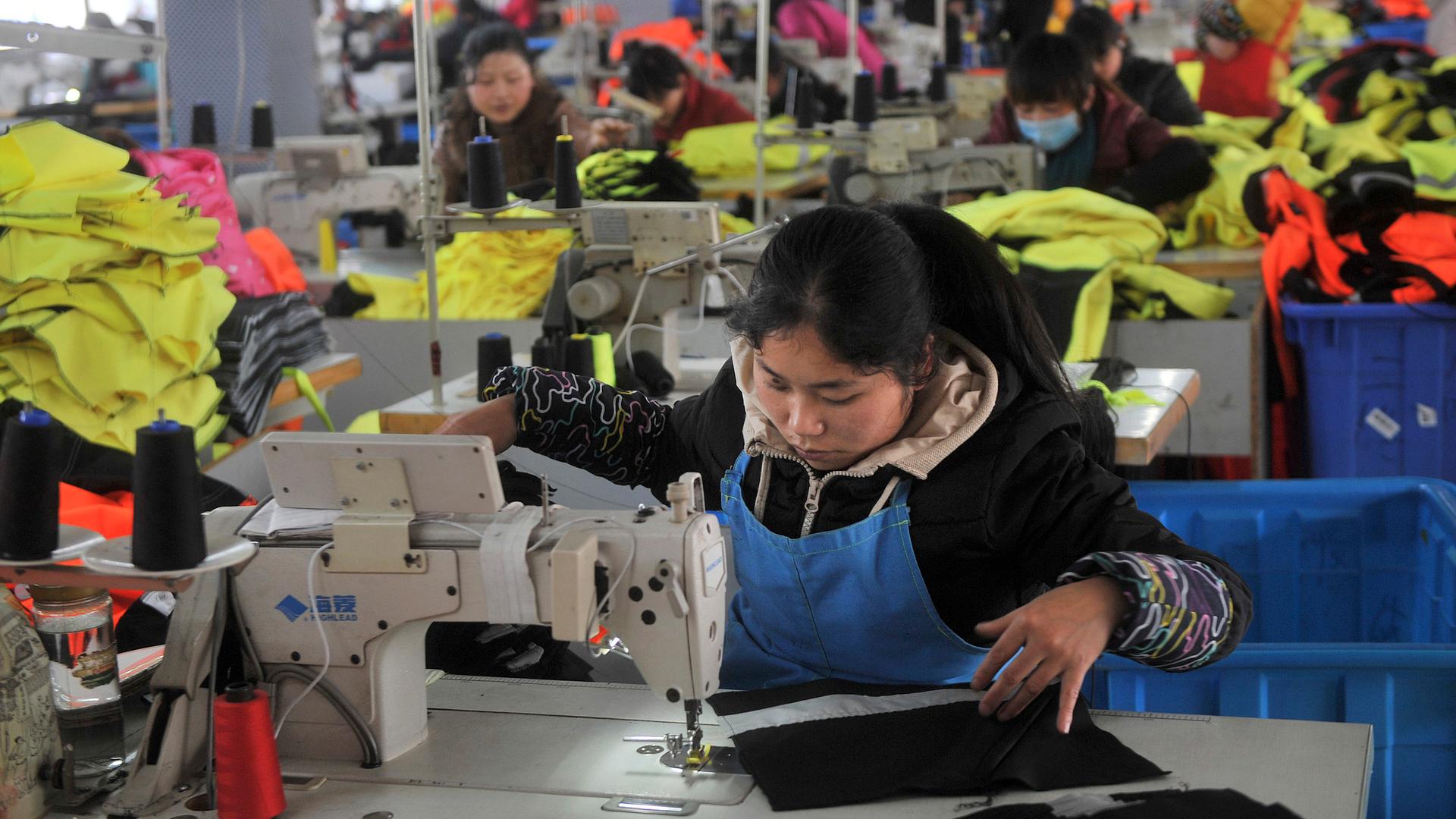An employee works at a garment factory, which exports products overseas, in Hefei, Anhui province January 19, 2015.
Here’s a seven-second economics recap: a country devalues its currency to make its exports cheaper. Today, my American dollars can buy a little more Chinese-made stuff than they could on Monday.
Make sense? Assuming yes, let’s take a trip inside the closet of Erik Gordon, a professor at the University of Michigan’s Ross School of Business. He’s not exactly a fashion diva — his sentiment, not mine.
“I keep my clothes until they fall apart,” says Gordon.
Gordon’s looked through his closet and rattled off where his shirts are manufactured. “This one’s from China. This one’s from Pakistan. This one’s from China.”
Chinese-made shirts were the bulk his wardrobe, and that reflects trade statistics: China still dominates worldwide garments production, even as it has lost market share in recent years to Southeast Asian and South Asian nations. For someone who buys a lot of Chinese-made clothes, China’s currency moves this week could help lower their shopping bill.
“Clothing is really price sensitive,” says Gordon. “If you buy your clothing anywhere from, say, Macy’s on down to Walmart, it’s sold mostly on price. So, I think we will see prices go down.”
Perhaps, If only 21st century global economics were quite so tidy. “Because only part of that ‘Made in China’ toy or ‘Made in China’ pair of jeans is actually made in China,” said Lee Branstetter, a senior fellow with the Peterson Institute for International Economics and economist with Carnegie Mellon University.
The global supply chain is incredibly complex. Your Chinese jeans may be designed in Europe, using US cotton, and Namibian copper for the brass buttons. And so on and so on.
Same goes for something like the iPhone, and other Chinese-assembled electronics or solar panels.
So Branstetter says don’t expect to see much cost savings this week.
He adds, that while China devaluing its currency about 3 percent over a couple of days has been a jolt to the world’s financial markets, it’s still a small percentage when it gets translated to our store shelves.
Branstetter says the real question is: Do China’s moves this week signal a fundamental shift in its exchange rate policy?
“And I think it may,” he says. “A rapid depreciation on the order of 10 percent or more could have a modest impact on trade flows over time.”
Cornell University economist Eswar Prasad agrees: The big news this week is what China is signaling. China’s Central Bank says it will allow market forces to help determine the Renminbi’s {official currency's] value going forward. Paradoxically, that’s what the US and institutions like the International Monetary Fund have been asking the Chinese to do.
“But they (the Chinese) are very cleverly doing it at a time, when it is convenient for them, and not that convenient for the US or for the rest of the world,” says Cornell's Prasad.
It’s not convenient, that is, if you’re a manufacturer or worker in an industry that competes with China.
But let’s get back to our closets and what this all means for US consumers and another question: What if you buy clothes that aren’t made in China?
My pants are from Sri Lanka and my shirt is from Mauritius. Lee Branstetter says I could get a discount, too — those nations are feeling the heat. “If China allows its currency to depreciate substantially, there will be quite significant pressure for them (competing nations) to do so as well,” said Branstetter.
But, and there’s always a but when it comes to global economics, if our trade partners devalue their currencies, their consumers may not be able to afford our stuff. Then we might not be making enough money to afford their stuff, and … well, you get the picture.
We want to hear your feedback so we can keep improving our website, theworld.org. Please fill out this quick survey and let us know your thoughts (your answers will be anonymous). Thanks for your time!
